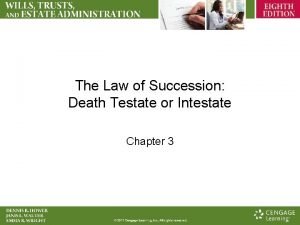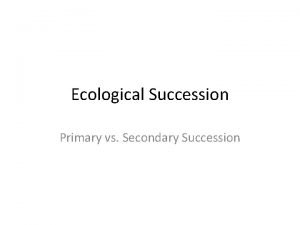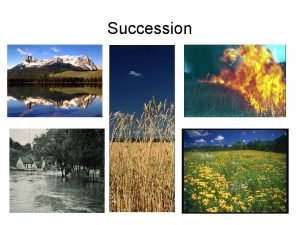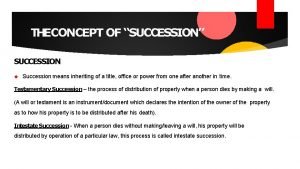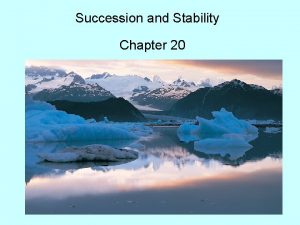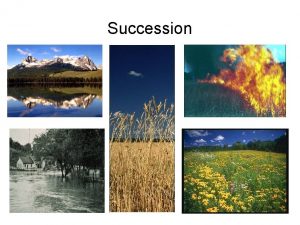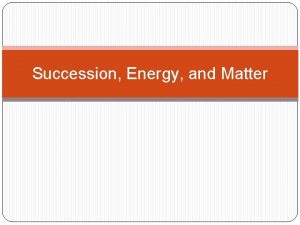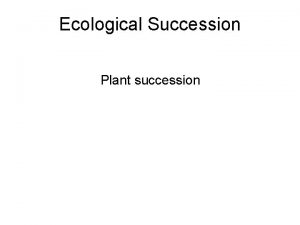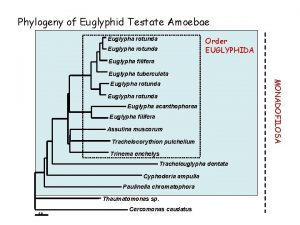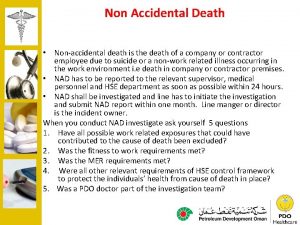The Law of Succession Death Testate or Intestate






















- Slides: 22

The Law of Succession: Death Testate or Intestate Chapter 3

Death Testate or Intestate • Testacy – Death with a valid will • Intestacy – Death without a valid will

Holographic Will • A will written by the testator’s own hand • Validity varies among states

Nuncupative Will • An oral will • Spoken in the presence of witnesses • Generally not valid except in extreme circumstances

Statutory Will • A fill-in-the-blank will created and authorized by state statute

Joint and Reciprocal Wills • Joint Will – A single document signed by spouses as their will • Reciprocal Will – Separate and identical wills made by spouses – Reciprocal provisions in each will – Agrees that neither spouse will change his/her will after the death of the other spouse

Living Will • A document separate from a will; expresses a person’s wish to be allowed to die a natural death and not be kept alive by artificial means

Types of Gifts in a Will • Specific Bequest or Legacy – A gift of a particular item or class of personal property • Specific Devise – A gift of real property

Legacy • Demonstrative – A gift of a specific monetary amount from proceeds of the sale of a particular item of property or from some identifiable fund • For example: $10, 000 from the sale of a house • General – A gift of a fixed amount of money from the general assets of the estate

Residuary Legacy or Devise • A gift, either by legacy or devise, of all the testator’s property not otherwise disposed of by a will

Gifts Not Distributed by the Terms of the Will • Ademption – An intentional act by a testator, while alive, to cancel or revoke a gift or to deliver the gift to another or to the beneficiary • Lapse – Failure to distribute property as directed by a will because the beneficiary died before the testator died

Gifts Not Distributed by the Terms of a Will • Abatement – The proportional reduction of the legacies and devises in a will because of inadequate available funds from the assets of the testator's estate

Per Capita Distribution • Division of an intestate’s estate by giving an equal share to the persons who are related to the decedent in the same degree of relationship • Distribution without benefit of right of representation

Degree of Kindred • The relationship between a decedent and his/her survivors that governs distribution of the estate – first, to a surviving spouse and lineal descendants – next, to lineal ascendants – next, to collateral relatives who are lineal descendants of the decedent's parents – next, to other next of kin, blood relatives of the decedent

Per Stirpes Distribution • Distribution of property by class or by right of representation – The estate is divided into as many equal shares as the decedent has children who are living or who are deceased, but have living descendants

Escheat • The passage of an intestate’s property to the state when there are no surviving blood relatives or a spouse

Rights of Survivors • Surviving Spouse – Right of election • Spouse’s choice of the statutory share or the share under the provisions of the will – Forced share • Share that spouse may choose pursuant to statute; alternative to choosing the share specified in the will

Divorce • If granted after execution of the will, the effect of the divorce on the will is determined by state law • Generally, divorce revokes the gift to the former spouse and not the will itself • Gifts to a former spouse usually pass to the residuary beneficiary • Legal separation does not change a spouse’s status

Marriage • Subsequent marriage may revoke the entire will, depending on the state • Compare to joint tenancy created prior to marriage

Premarital Agreement • A contract between spouses before their marriage, whereby property rights are predetermined • Usually used in a second marriage to protect children of the first marriage • Compare to postnuptial agreement

Children • Adopted children – Are treated the same as natural children • Nonmarital children – May inherit from nonmarried parents, but statutes vary among states

Children • Pretermitted children – Omitted children in a will • The will must be clear in stating that the omission was intentional • If a child is not mentioned in the will, it is assumed that the omission was inadvertent • Parents may intentionally disinherit children, but may not disinherit a spouse
 Died testate
Died testate Nevada intestate succession
Nevada intestate succession Simon tolbert
Simon tolbert Intestate distribution texas
Intestate distribution texas Ecological succession succession of a pond
Ecological succession succession of a pond Ecological succession succession of a pond
Ecological succession succession of a pond Newton's first law and second law and third law
Newton's first law and second law and third law Newton's first law of motion
Newton's first law of motion Boyle's law charles law avogadro's law
Boyle's law charles law avogadro's law P=k/v
P=k/v Forensic pathologist definition
Forensic pathologist definition Hình ảnh bộ gõ cơ thể búng tay
Hình ảnh bộ gõ cơ thể búng tay Slidetodoc
Slidetodoc Bổ thể
Bổ thể Tỉ lệ cơ thể trẻ em
Tỉ lệ cơ thể trẻ em Chó sói
Chó sói Chụp phim tư thế worms-breton
Chụp phim tư thế worms-breton Chúa yêu trần thế alleluia
Chúa yêu trần thế alleluia Các môn thể thao bắt đầu bằng tiếng đua
Các môn thể thao bắt đầu bằng tiếng đua Thế nào là hệ số cao nhất
Thế nào là hệ số cao nhất Các châu lục và đại dương trên thế giới
Các châu lục và đại dương trên thế giới Công thức tiính động năng
Công thức tiính động năng Trời xanh đây là của chúng ta thể thơ
Trời xanh đây là của chúng ta thể thơ
